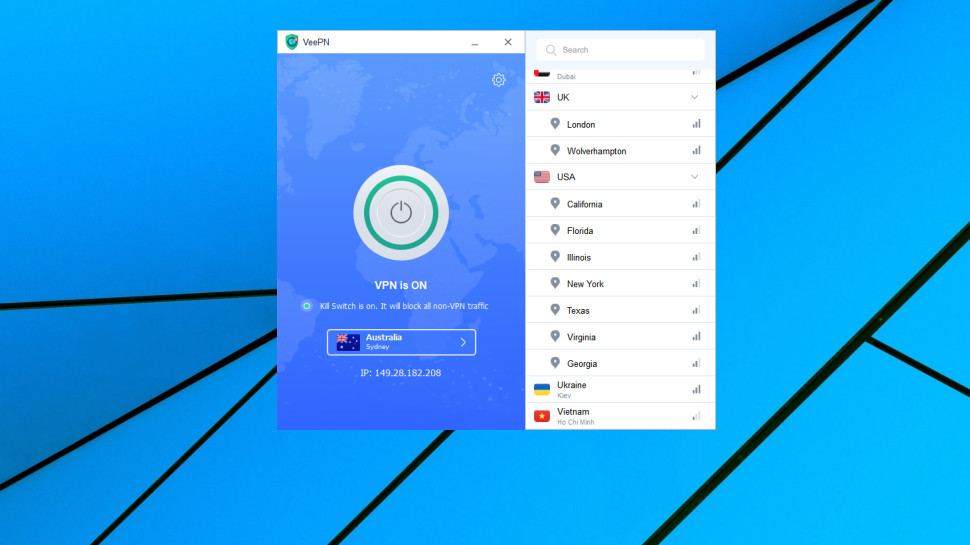TechRadar Verdict
VeePN has too many issues for us to fully recommend it right now, but it's improved a lot over the past year and there's a lot to like here. If VeePN continues in its current direction, it could soon be a top-quality VPN.
Pros
- +
Large network
- +
Runs on many platforms
- +
Bitcoin support
- +
Cheap 5-year plan
Cons
- -
Windows kill switch issues
- -
Slow speeds from some locations
- -
Mobile apps are short on features
- -
No security audit
Why you can trust TechRadar
Panama-based VeePN may not be a big name in the VPN world, but point your browser at the company website and you might wonder why, because it seems to have plenty to boast about.
You get apps for Windows, Mac, Android, iOS, Linux and more, for instance. Router setup guides. Chrome, Firefox and Opera extensions. And you're able to connect up to ten devices simultaneously.
The network is a decent size with 2500+ servers in 50 locations. Although these are mostly in the US and Europe, there are 226 servers in Asia Pacific, 102 in the Middle East and India, and 30 in Africa.
- Want to try VeePN? Check out the website here
VeePN claims to more than cover the fundamentals: 256-bit encryption, a kill switch, support for some of the best protocols (OpenVPN, IVEv2), the option to have a custom dedicated VPN server for maximum performance.
Pricing on the monthly plan is higher than some at $10.99, but that falls to a more reasonable $5.83 on the annual plan, and just $1.67 if you sign up for five years. We wouldn't normally recommend that length of subscription, but do the math: VeePN asks a $100 up-front payment for five years protection, NordVPN charges $120 for two. If you like the service and use it for more than 18 months, you'll have got decent value for money.
VeePN supports a vast range of payment options, including card, PayPal, Bitcoin and other cryptocurrencies, and host of other options via Paymentwall.
There's no trial or free plan, but if you buy a plan and run into problems, you're protected by a 30-day money-back guarantee. We checked the small print for annoying catches ('you mustn't have connected more than once'), and found nothing alarming. If anything, VeePN falls over itself to be helpful, saying that it might give refunds after 30 days if you had technical issues, contacted the company and it hadn’t resolved the situation.
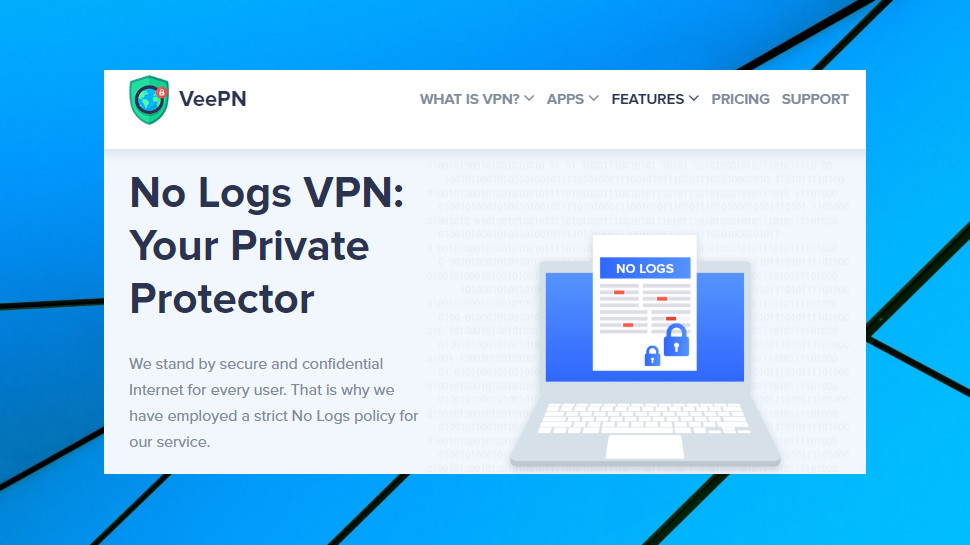
Privacy and logging
VeePN promises 'no activity logs, no connection logs' on the front page of the website, but we know from experience that the small print can tell a very different story.
But in this case, VeePN's privacy policy expands on the claim by telling us everything it doesn't do:
"We do not collect logs of your activity, including no logging of browsing history, traffic destination, data content, or DNS queries. We also never store connection logs, meaning no logs of your IP address, your outgoing VPN IP address, connection timestamp, or session duration."
The policy goes on to describe some very minimal session logs, covering 'the total amount of web traffic for each session and session dates', as well as 'encrypted information about the number of connected devices for each account.'
That's understandable, as VeePN needs to police its limit of 10 simultaneously connected devices. Whether it's necessary to log session dates and traffic used is more open to question, but if there's no record of your outgoing IP address, there's nothing here that can link any internet action back to your account.
There's no way to confirm that VeePN really is following these rules internally, of course. That's why we'd like all VPNs to follow the example of TunnelBear, ExpressVPN, NordVPN and others and publicly audit their systems for privacy and security. VeePN is at least saying all the right things, but potential customers shouldn't have to rely on trust alone.
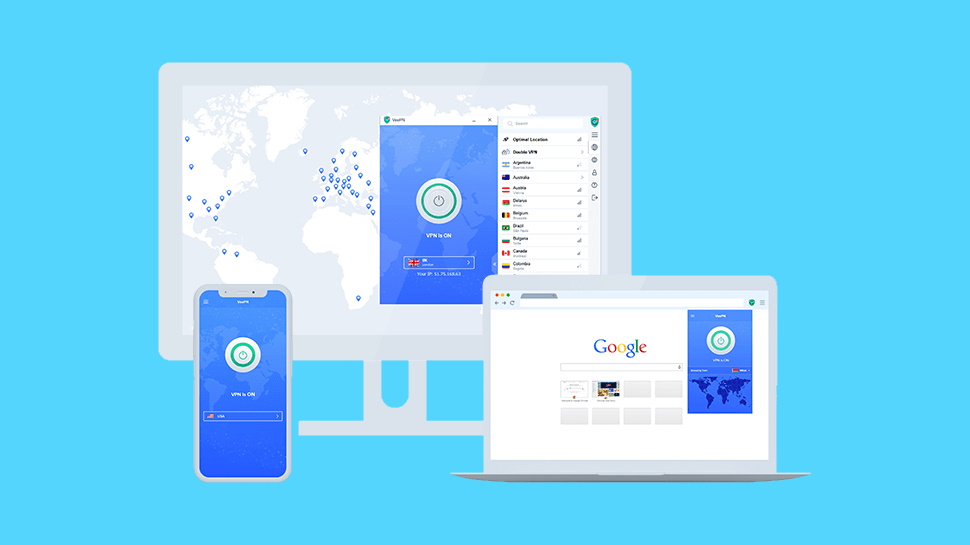
Apps
VeePN's signup procedure is simple, straightforward, and much like almost every other web service you've ever purchased: choose a plan, hand over your email address, pay via the usual routes and you're ready to go within seconds.
In this case, the VeePN website directed us to a Download area where we could grab one of its many apps. We choose the Windows offering, downloading and installing it without any hassles.
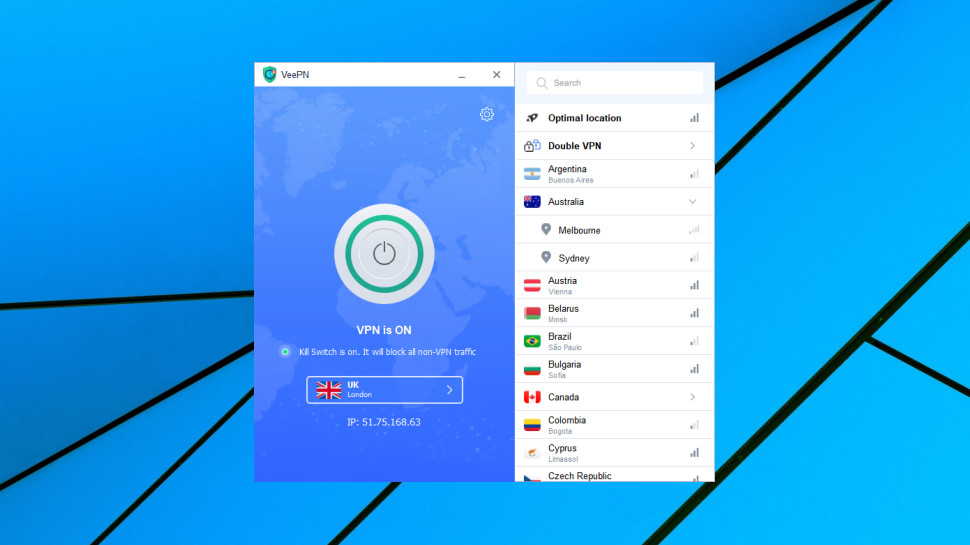
The client interface followed the same familiar pattern. There's the simple app-like front end, just a large round Connect button and the currently selected server. A location list includes all VeePN's countries, while a Favorites system makes it easier to access key servers.
The Settings box has expanded since our last review.
The old options are still there, covering all the basics: startup behavior, your choice of protocol (OpenVPN, IKEv2, 'VeePN Smart TCP' and 'VeePN Smart UDP'), an optional kill switch and DNS leak protection.
Useful additions include an option to automatically connect when you access new networks; the ability to use custom DNS servers; and although it's not widely advertised on the website, there's even ad, malware and tracker-blocking.
A host of further enhancements includes an 'Optimal location' feature, which automatically selects the best server for you. We're not sure it always makes the best decision - although we're based in the UK, it chose to connect us to France - but it's a step forward.
Server load indicators on the location list help you make smarter manual choices. Your new IP address is displayed when you connect, and you can now connect or disconnect from the client's system tray icon.
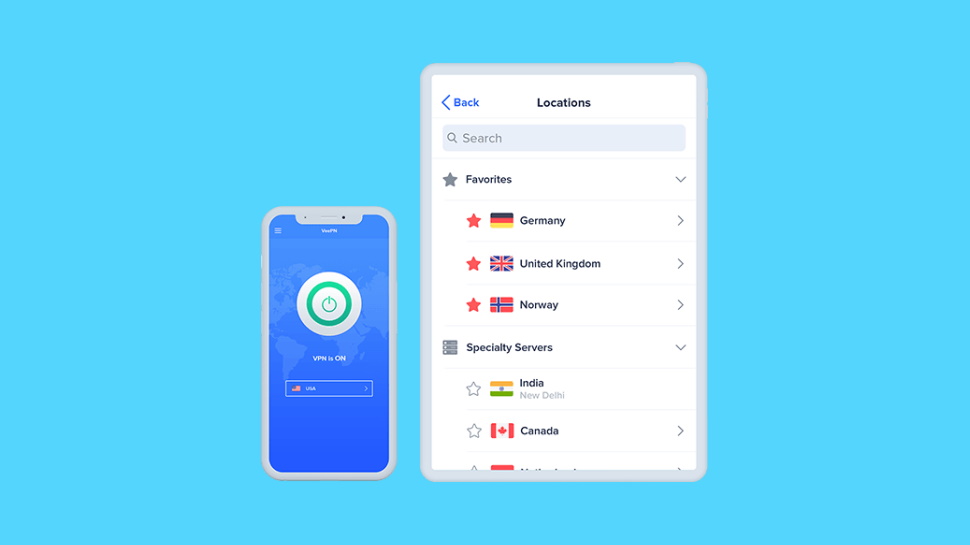
The Android app looks and feels much the same, with some of the same issues. When we chose 'Optimal Location' from our phone, for instance, this time it chose Double VPN via Germany.
There are also some differences, ranging from the small (the app doesn't display your new IP address when you connect) to the significant (no ad, website or tracker blocking; no custom DNS, and no automatic 'connect whenever I access a network', even though that's arguably more important for Android than Windows devices.)
Overall, these are decent apps, and VeePN deserves credit for its many improvements; but there's still plenty to do.
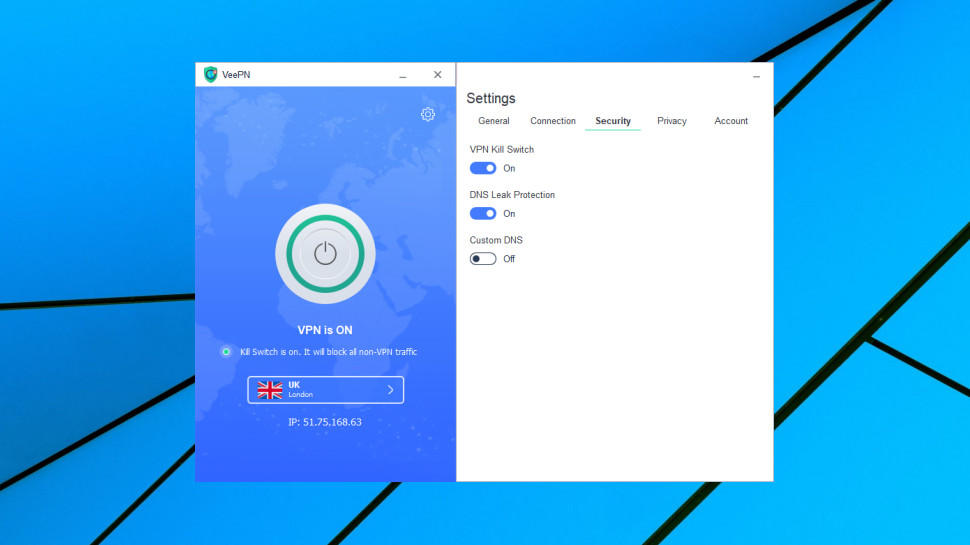
Kill switch
VeePN's Windows client kill switch was a major problem during our last review, as it utterly failed to do anything useful with IKEv2 connections. The client has improved significantly over the past months, though, so we were keen to see if this critical issue had been fixed.
We connected to our nearest UK server via IKEv2, forcibly closed the VPN, and... There was good news, and bad.
The good news is the kill switch correctly blocked our internet access, preventing any data leaks.
The bad news is that that client hung on its 'Reconnecting' screen, never managed to re-establish the connection, leaving our internet access disabled and without displaying any notification to tell the user what's going on. They'd figure it out eventually, and it's easy to fix - cancel the reconnection attempt to get internet access back, manually click Connect and this time it should work - but is still a usability issue.
It got worse when we tried a different test technique, closing TCP connections opened by the VeePN client and Windows service. The connection died, our internet access wasn't blocked, and again, there was no desktop notification. If this happened in real life, you'd carry on assuming VPN was up and running, maybe for hours, when in reality you weren't protected at all.
This flaw showed up with both OpenVPN and IKEv2 connections, too. In each case, we effectively closed the VPN, removing all protection, and without seeing any warnings.
This isn't quite as bad as it sounds. The VeePN client successfully handled the situations it's most likely to encounter, with both OpenVPN and IKEv2, and that's a step up from the last review.
Our tests do show there's at least the possibility that VeePN's protection could fail, though, even with the kill switch turned on, and that's not good enough. The company needs to make its engine more robust, and it might be wise to warn users when the connection drops, too.
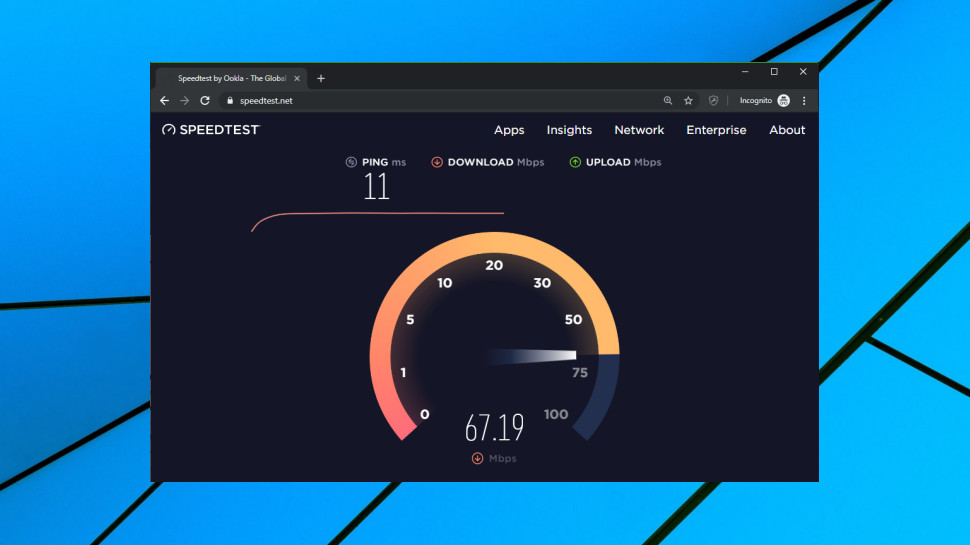
Performance
VeePN got off to a good start in our final tests, when multiple privacy-testing websites found no sign of any DNS or WebRTC leaks.
VeePN boldly claims it allows you to 'access any blocked websites from anywhere in the world', but that wasn't our experience. The service got us in to US YouTube and US Netflix, but failed with BBC iPlayer, Amazon Prime Video and Disney+.
Speed results were a little mixed, too, with UK servers averaging an acceptable 55-65Mbps on a 75Mbps test line, while UK to US speeds were more disappointing at 20-30Mbps. This got even more extreme as we went long distance, too, so for instance Cambodia performed well at 20-25Mbps, but Australia struggled to a relatively poor 5-10Mbps. Still, all locations were usable for basic tasks, and the 30-day money-back guarantee gives you time to run speed tests of your own.
Final verdict
VeePN has made good progress over the last year, but the faulty Windows kill switch is still an issue, website unblocking performance is poor and speeds are acceptable, but not the best. There are better options around, although if price is your top priority, VeePN's 5-year plan has a lot of appeal.
- We've also highlighted the best VPN services

Mike is a lead security reviewer at Future, where he stress-tests VPNs, antivirus and more to find out which services are sure to keep you safe, and which are best avoided. Mike began his career as a lead software developer in the engineering world, where his creations were used by big-name companies from Rolls Royce to British Nuclear Fuels and British Aerospace. The early PC viruses caught Mike's attention, and he developed an interest in analyzing malware, and learning the low-level technical details of how Windows and network security work under the hood.
